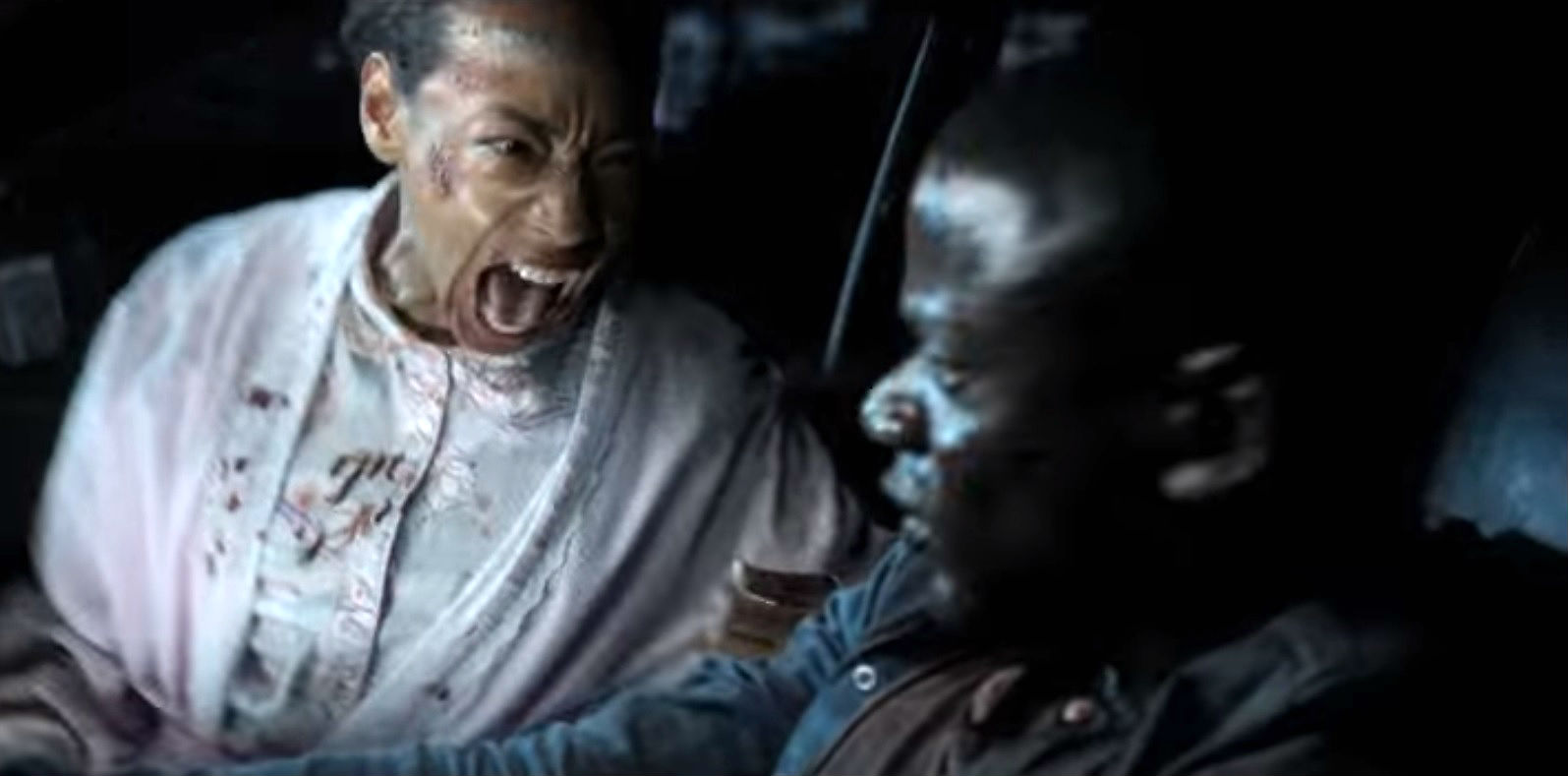Box Office Democracy: “Get Out”

I am going to spend a lot of time telling you how scary Get Out is, but I want to take a moment at the top of this review to tell you how fresh it is. Jordan Peele is a first time director and he’s made a movie that isn’t like anything I’ve seen before. He seems to understand his actors so well he gets performances that are frankly unbelievable. I could spend an entire afternoon trying to describe the range of emotions in a 30 second sequence of this film and still feel inadequate, so I don’t know how you get someone to do it on camera. Horror movies are about metaphor and tempo control, and both are handled here in ways I’ve never seen before— and while I’m not enough of a horror maven to guarantee it’s never been done before I sure see a lot of movies. I generally do not care for horror movies, and I loved Get Out.
Get Out is a simple enough story: Chris, a black man, (Daniel Kaluuya) is nervous about his white girlfriend Rose (Allison Williams) taking him home to meet her parents when they don’t know he’s black. He meets them and a slew of microaggressions from her father (Bradley Whitford), and some prodding about his smoking habit from her mother (Catherine Keener) make him uncomfortable. All of the black people his sees in this town behave strangely, and it spirals out from there into a story I don’t want to spoil (but one of the trailers sure seems to have the whole thing) because if you can see it clean it’s really worth it. It functions as a great parable about the dangers of more insidious forms of racism, or you could ignore all of that and simply appreciate it as one of the freshest horror movies we’ve seen in some time. Hell, just by having the protagonist be an able-bodied young man it’s well outside the norm for a modern horror movie.
It’s hard to say exactly why Get Out is so scary, because it isn’t scary in typical movie fashion. There are jump scares, but they’re used sparingly compared to what modern horror has prepared for us. Neither is the horror some kind of monster or disgusting creature. Get Out traffics in the horror of realizing you are in a very bad situation and that you perhaps should have left some time ago. It’s a movie about growing unease and slowly inching yourself towards the edge of your chair. We’re all probably familiar with Jordan Peele from his comedy work, and there are some good laughs here but I can’t help but suspect they’re helped along by the general unease and need for release it builds in the audience. That said ,the backyard gathering scene is one of the funniest things we’ll see all year. The character of Rod functions as kind of a Greek Chorus and also gets a lot of good material just sort of commenting on the absurdity of the whole situation. Those are easier laughs but no less genuine.
I want to call Get Out the best horror movie I’ve seen in years, but I keep coming back to Crimson Peak and what a fantastic movie that was. In a lot of ways they aren’t remotely the same thing. Crimson Peak was made by a director who has been working for decades, cost $55 million dollars to make, and is anchored but these massive shots of haunting vistas and expensive looking sets. Get Out is a first-time director spending $4.5 million for a movie that gets most of the terror out of small moments of unease. The shot that will stay with me from Crimson Peak is Mia Wasikowska walking in to the door of that house for the first time to discover there are holes in the ceiling and a sinking floor; my most incredible moment in Get Out is when Chris tells Georgina that he gets scared when too many white people are around and we watch her go from terror to crying to laughing it off. Both are haunting, both are incredible and both are sublime triumphs of slightly different kinds of craft. This is a long way to say: who cares what the best horror movie is, as long as we get so many excellent ones.
I am, of course, not the best person to talk about the racial politics of this movie— my analysis is going to be facile compared to the myriad critics you could find who actually have to live with the prejudices this movie plays on. I will say that this movie plays on some of the fears instilled in me as a child when my father warned me that as a Jewish man I should never go on a road trip through the American south. That isn’t what this movie is about, but it certainly made me afraid of big expanses of nothing filled with a certain kind of polite white people in it. That is nothing like being black in America and should not be read as trying to make this film about me, rather just trying to explain why it worked on me the way it did. If you’ve read all the way this far please go find and read two reviews of this movie written by black critics.











